Woodland and Guidepost: Stronger Together
We were thrilled when last year Woodland Pre-Schools joined the Guidepost Montessori network. This opened the next chapter for a group of schools with over 40 years of history serving Hong Kong families. This summer, that transition will be complete.

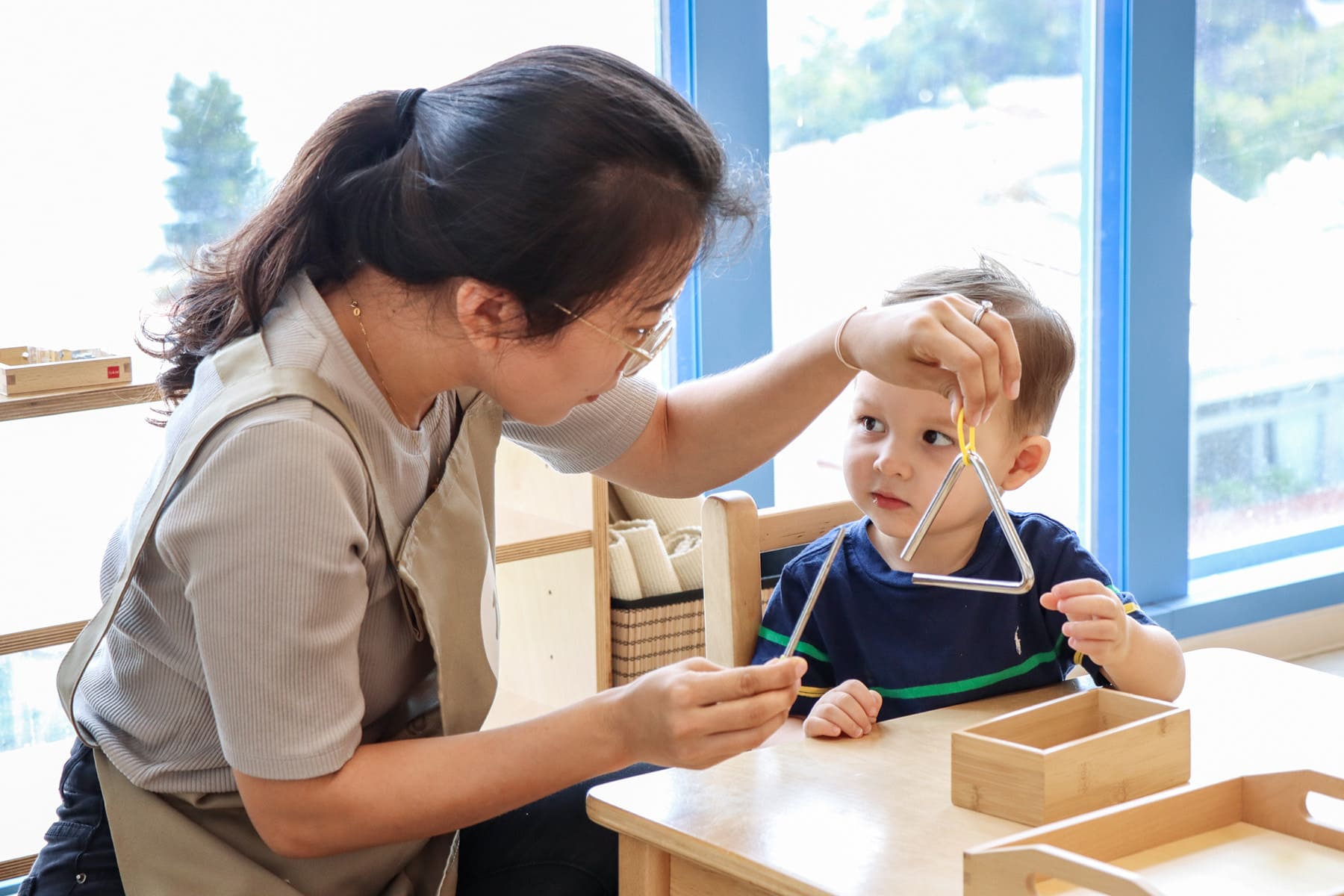
Who We Are
Guidepost exists to guide, empower, and nurture independence in children from early childhood, preschool through to the primary years. Through our network of schools across Hong Kong and around the globe, we offer programs for children and parents from pregnancy through primary.
The Guidepost Advantage
We serve both children and their parents with holistic support from pregnancy through primary
Our authentic Montessori program is scientifically structured to nurture children’s growing independence at each stage of development, while being uniquely tailored to your individual child’s needs and interests. In a Guidepost classroom, your child’s activity is driven by her choices, where she’ll take pleasure in mastery of different subjects, and her teachers are trained to observe and guide her exploration of the broad curriculum.
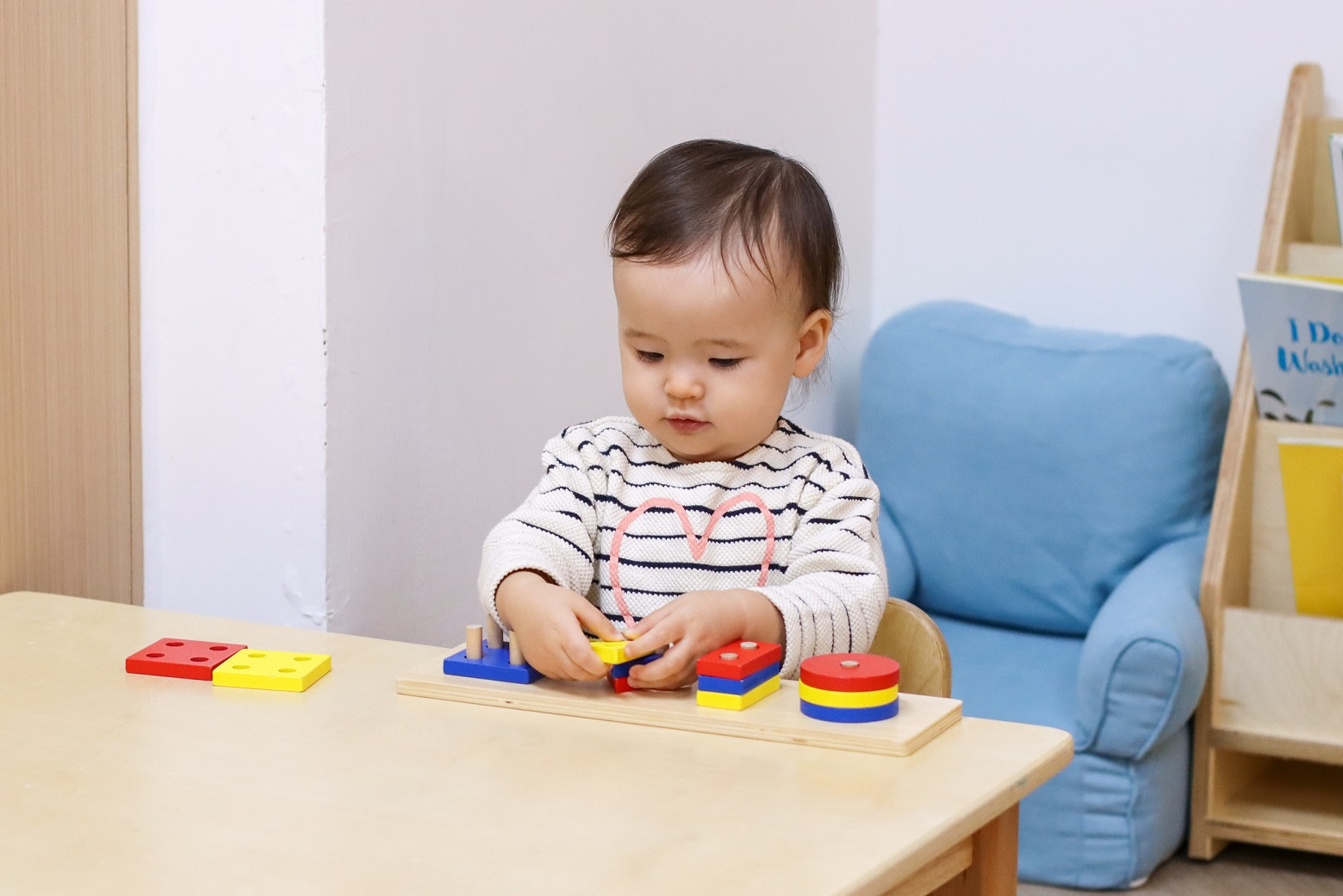
Guidepost programs offer a full-time dual-language environment in which your child will use both English and Mandarin daily to learn, socialize, and interact with their environment. Your child will have one fluent English-speaking guide and one fluent Mandarin-speaking guide in his classroom at all times, and be surrounded by learning materials in both languages. In addition to teaching the skills to cultivate reading and writing in both languages, we use both English and Mandarin as living languages, so your child can access the entirety of our curriculum in either language.
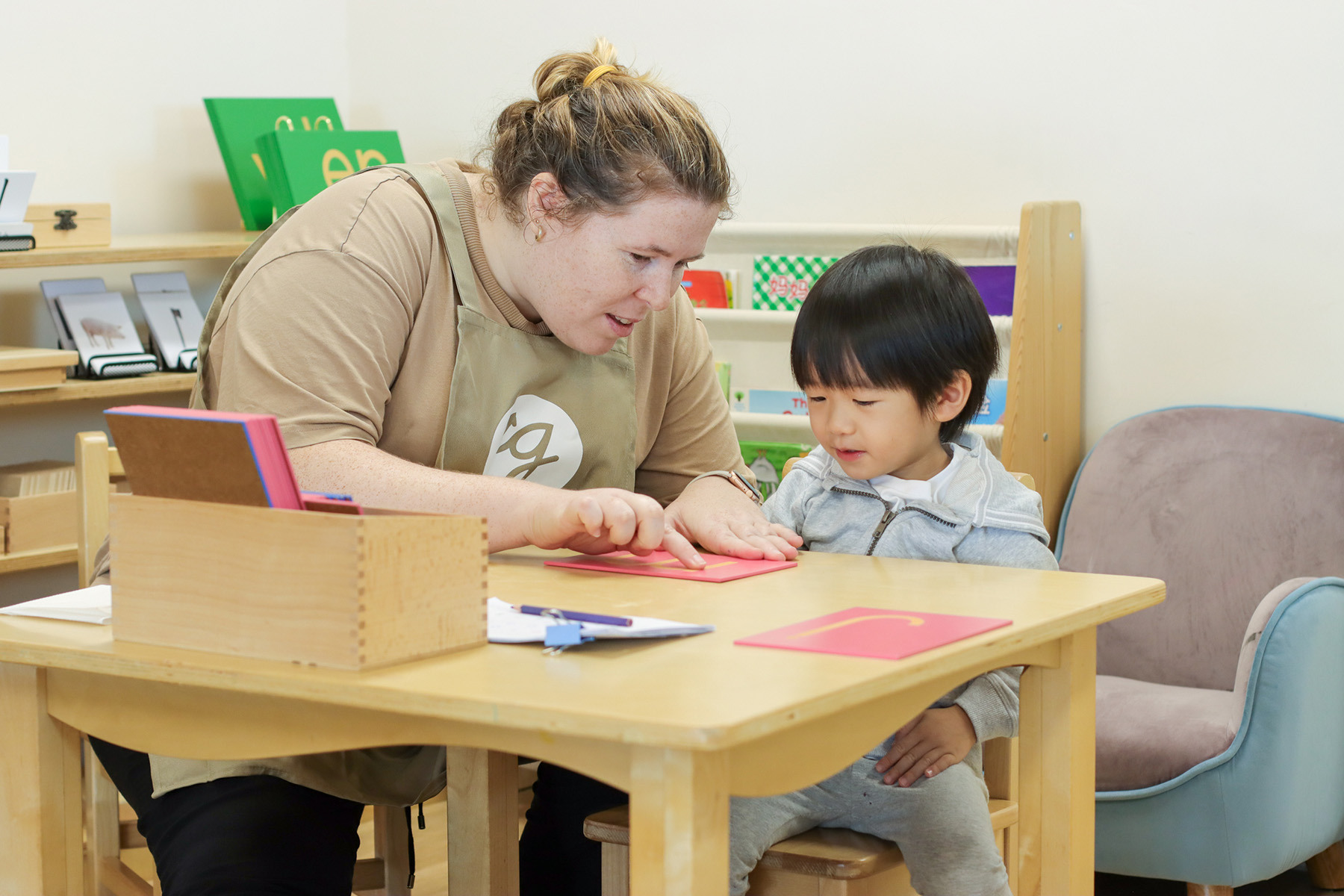
At Guidepost, we put children and parents first. We deliver an excellent learning experience for your child while also focusing on your needs as a parent, because we serve your entire family. We make it easy for busy parents like you to be fully engaged in your child’s education, with real-time insight into your child’s daily activities and progression through the curriculum, available whenever you want it. And at Guidepost, we don’t charge any fees that don’t go 100% towards your child’s tuition: that means no capital levies, debentures, registration fees, or other extra costs.
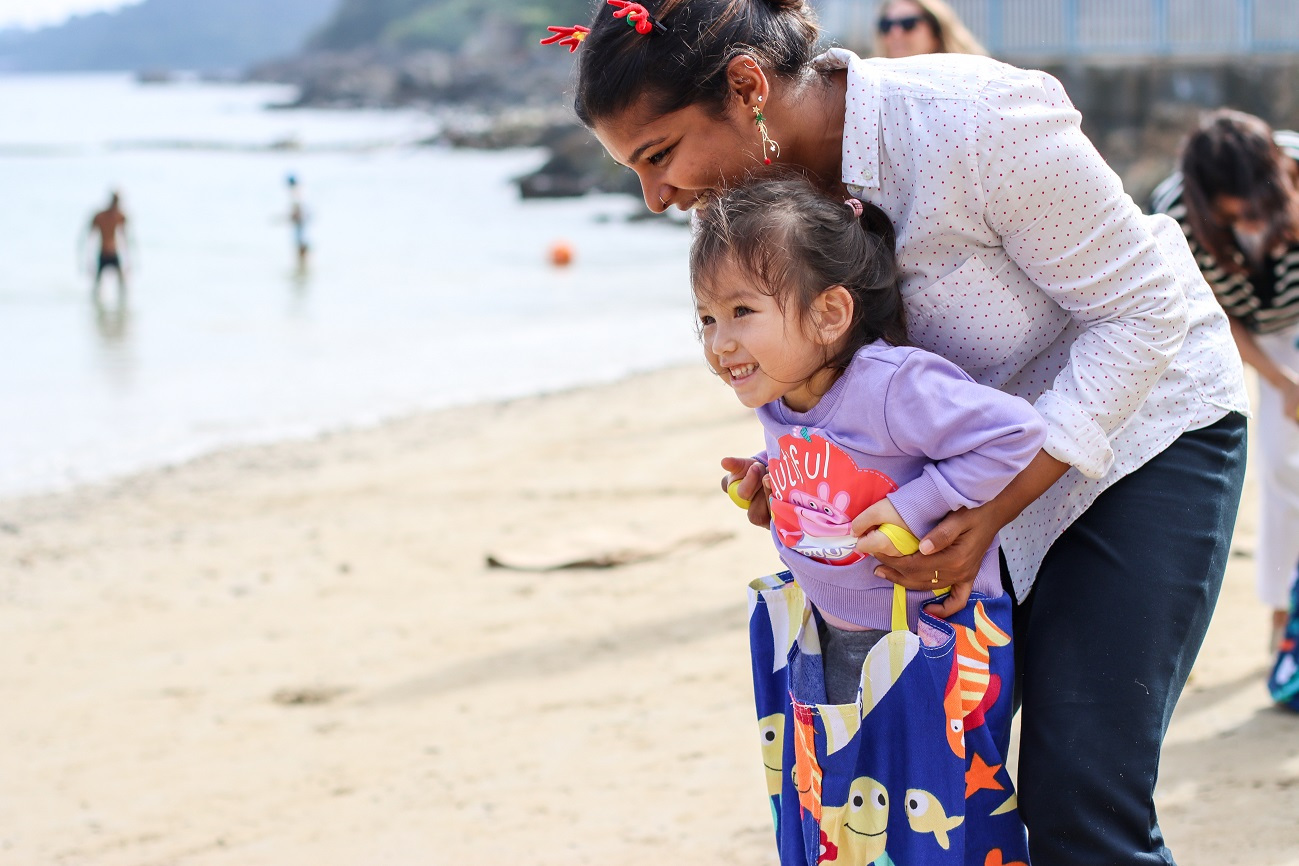
When you join the Guidepost community, you get the advantages of an intimate school environment where everyone knows you and your child, while also getting the infrastructure and quality standards that come from being part of a larger network. Enjoy the familiarity and personal connections within your campus while accessing network-wide benefits like monthly birthday parties, free events for families, camps across Asia, and smooth transfers if your family ever relocates.
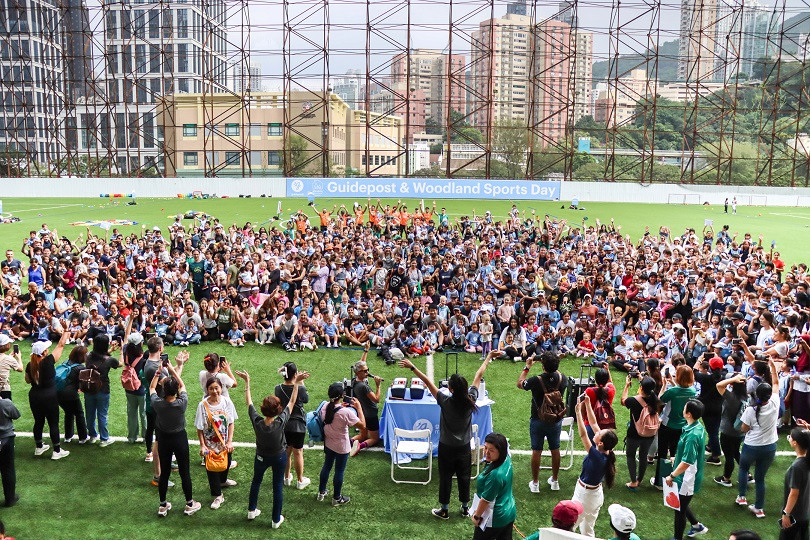

The Montessori Approach
Montessori education supports children's growing independence at every age. This approach helps your child develop a fundamental, enduring love of learning and attain the deeply ingrained academic, social, and emotional skills they need to succeed as an adult.
In Montessori, “follow the child” often fuels the misconception that children are given free rein in their environments – which can further lead families to assume that Montessori classrooms are entirely permissive and do not instill discipline. However, "child-led" in a Montessori context does not mean the absence of structure, nor does it preclude discipline. Maria Montessori's concept of "freedom within limits" put equal emphasis on both. Limits help to create a healthy balance. In our classrooms, children are free to choose between different works and activities, but it is our role as the adult to set limits – and we set these limits during neutral times. Limits frame expectations and help children be more successful in the work that they choose. We must give them space, freedom of movement and respect that they will progress at their own pace, trusting their own process while remaining present to guide them. They crave the structure that limits give them!
"To let the child do as he likes when he has not developed any powers of control is to betray the idea of freedom." - Maria Montessori
Montessori believed that to cultivate concentration — to truly allow children to explore their interests — we must protect their ability to engage in deep and meaningful work for an extended period of time. For many of us, this idea comes as a great relief. How many times were we finally fully immersed in the throws of a math problem when the bell rang and it was time to put away our work and turn to geography or history? Imagine this in your own life as an adult: what if we could spend a certain period of each day completely uninterrupted and focused on the task at hand? Not having to interrupt work with a meeting. What types of productivity could you achieve? Montessori affords all of this, helping to inspire students to be flexible, create independence, and develop a sense of order. The uninterrupted work cycle in a Montessori program promotes focus and allows the child to build her capacity not just to make choices but to learn the joy of persisting in them.
“Once you interfere, a child’s interest finishes, and the enchantment is broken. It is as though he says, ‘I was with myself inside. But you called me, and so it is finished.’ ” - Maria Montessori
The Montessori approach emphasizes the importance of the environment in setting children up for success. It’s common to recognize that young children are highly perceptive and unusually sensitive to their surroundings. Montessori agreed, and took this a step further: she believed that children use their early experiences to build the very foundations of their minds. If the child finds herself in a world of beauty and order, she can use this to form a wordless confidence that the wider world is beautiful and knowable. She is afforded the opportunity to make clear choices from attractive options, to understand where things go and predict where to find them, to focus her attention and efforts on interesting materials, and to succeed at what she sets out to do. She pours her energy into purposeful endeavors that serve her needs and delight her soul — whether a delicious snack prepared with care, or a vase of flowers arranged just so. Through a thousand small actions and impressions every day, she takes this beauty and order into herself. Conversely, if the child finds her world uncared for and in disarray, she will be bombarded with a cacophony of meaningless and disconnected objects, with unpredictability, and with distraction — and might unknowingly fall into patterns of insecurity and dependency to cope with what she takes to be a chaotic world.
"I then came to realize that everything about a child should not only be in order, but that it should be proportioned to the child's use, and that interest and concentration arise specifically from the elimination of what is confusing and superfluous." - Maria Montessori
In Montessori schools, multi-age groupings give opportunities for younger children to learn from older ones and experience new challenges through observation. Older children deepen their own understanding by teaching concepts they have already mastered, while developing leadership abilities as role models in the classroom. Since each child's work is individual, Montessori students have more time to explore academic concepts at their own interest and readiness. So, rather than a classroom of four-year-olds all being directed to practice phonics at once, a comparable Montessori classroom would have four-year-olds working on any number of language activities at their choosing and experience level. If a three-year old was ready for more advanced language work, she wouldn’t be held back by a classroom agenda. On the contrary, if a five-year old was struggling with language work, she would have access to more one-on-one support. At the same time, there is cooperation rather than competition between the ages because differences in abilities are normalized. This arrangement of course mirrors the real world, where adults work and socialize with people of all ages and abilities.
“There is a great sense of community within the Montessori classroom, where children of different ages work together in an atmosphere of cooperation rather than competitiveness. There is respect for the environment and for the individuals within it, which comes through experience of freedom within the community.” - Maria Montessori
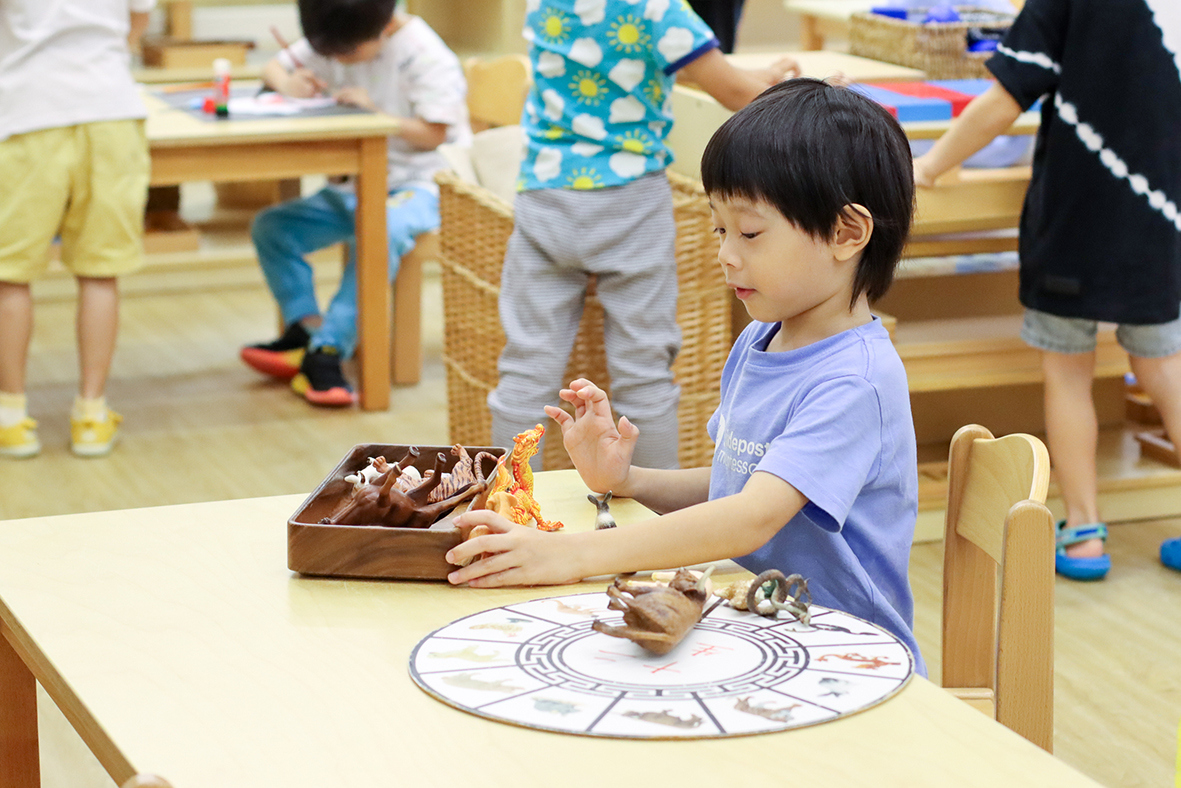



Testimonials
Feedback from families is crucial to our continuous improvement. See what Guidepost parents in Hong Kong have to say.
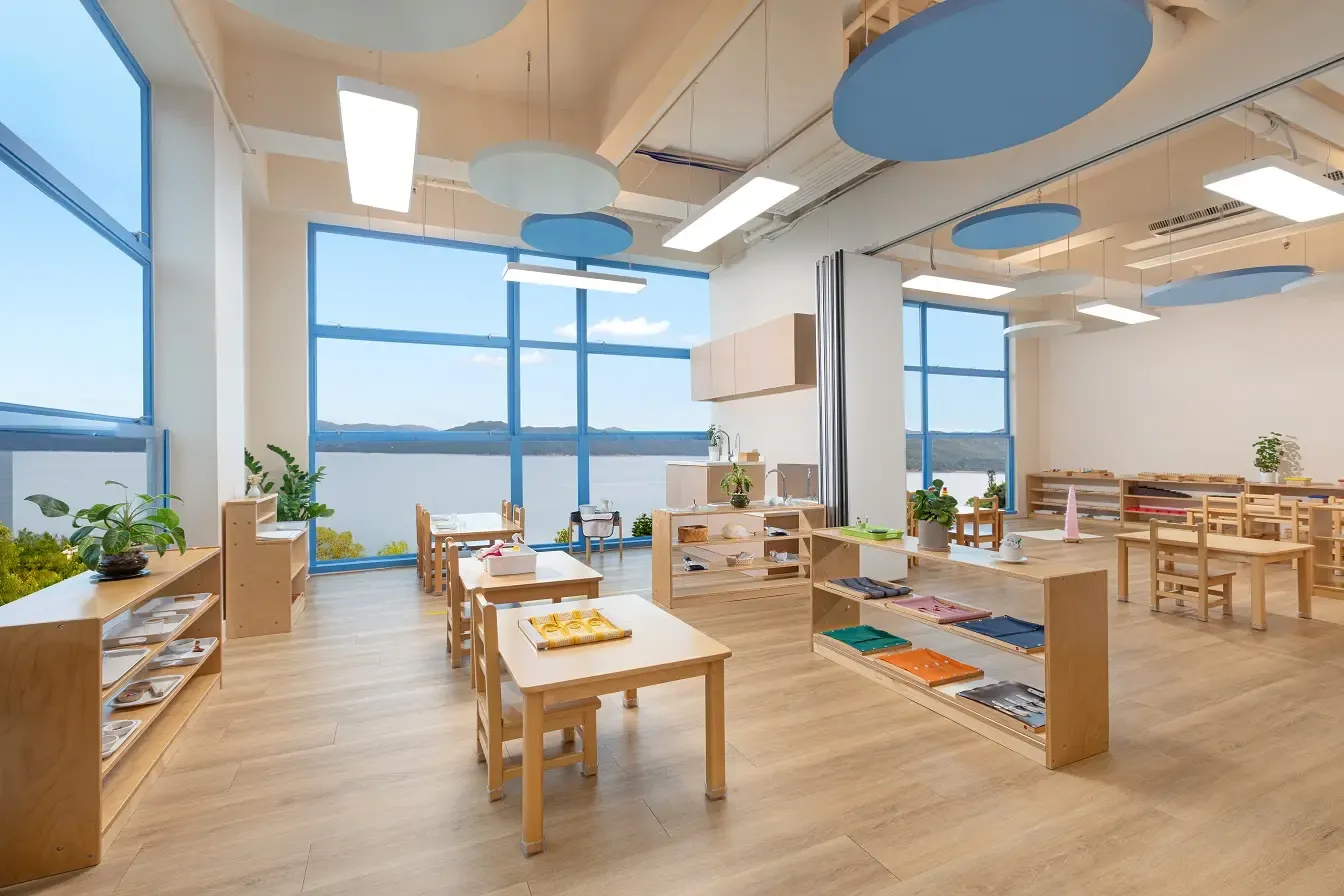
Our Locations
Guidepost is a growing school network in Hong Kong, with 13 locations across the city, and a global community with more than 100 schools around the world. Joining the Guidepost community provides your family with a smooth transition into school options through pre-nursey, kindergarten, primary, and beyond, wherever your journey takes you.
Causeway Bay
Guidepost Family ClubCauseway Bay
Primary SchoolChai Wan
Guidepost MontessoriClearwater Bay
Guidepost MontessoriHappy Valley
Hawthorn Road
Guidepost Montessori
Happy Valley
Sing Woo Road
Guidepost Montessori
Discovery Bay
Guidepost MontessoriKennedy Town
Guidepost MontessoriMid-Levels
Guidepost MontessoriMid-Levels
Guidepost Family ClubPok Fu Lam
Guidepost MontessoriRepulse Bay
Guidepost MontessoriSai Kung
Guidepost MontessoriInquire Now
Complete this brief form and our team will get in touch



